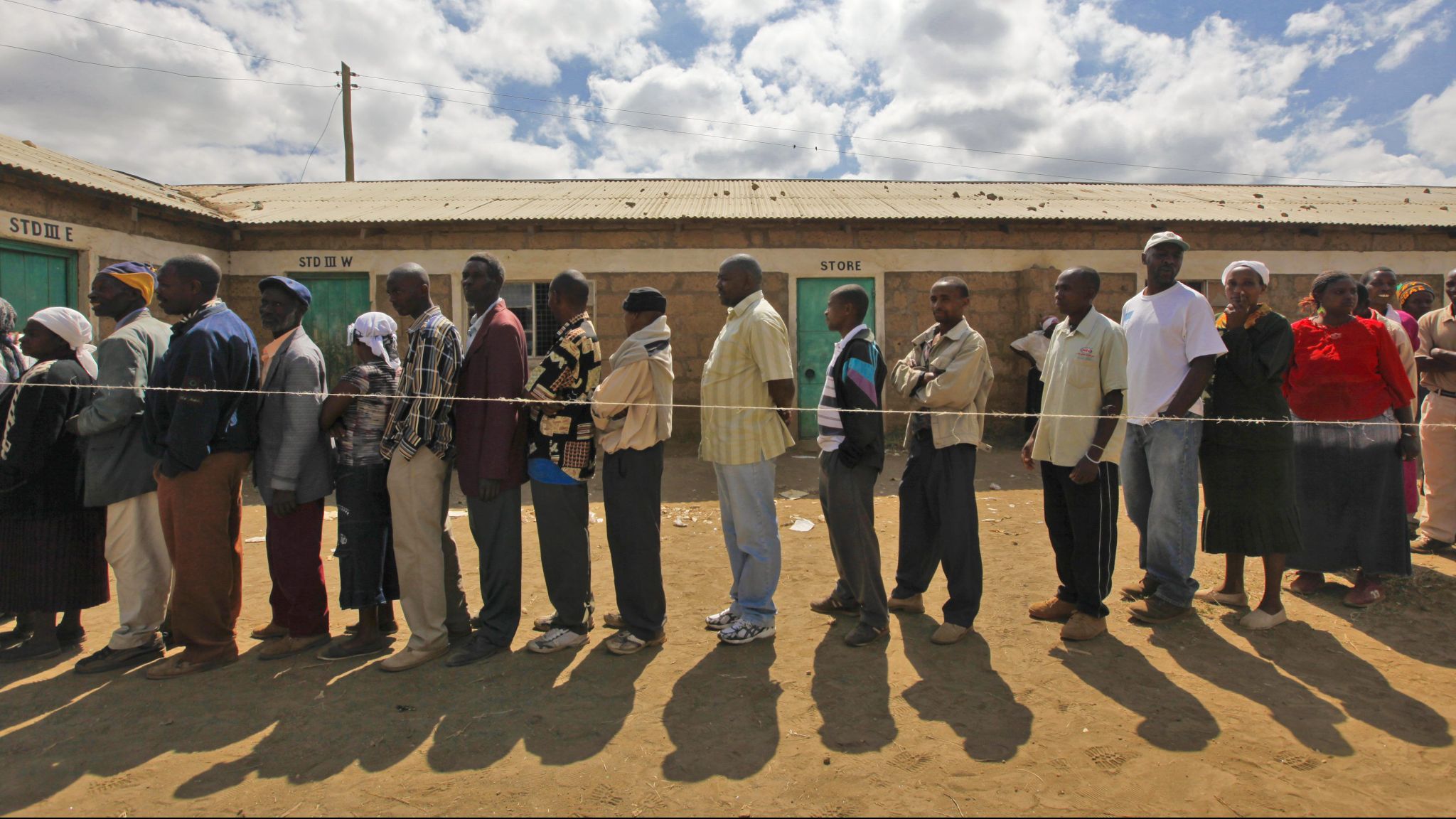
With two days to go until Kenya’s repeat presidential election, the country is bracing for impact. All that has transpired since Kenya’s Supreme Court annulled the re-election of President Uhuru Kenyatta in early September will come to a head on Thursday when voters will return to the polls to elect their next president amidst one of the most polarized political environments since the 2007 presidential vote. That election resulted in unthinkable post-election violence over the period of two months leaving approximately 1,500 dead and 600,000 internally displaced.
But will the presidential re-run occur on October 26, and if it does will the poll be free, fair and credible? The chairman of Kenya’s electoral commission, Wafula Chebukati, has said that the body is not adequately prepared to deliver a credible poll. Another electoral commissioner, Roselyn Akombe, recently defected to the U.S. citing intimidation and fear. She too painted a disconcerting picture of a commission fraught with political corruption and a chairman under siege. Staffing at the commission has been such a polarizing issue that it forced the CEO Ezra Chiloba to take a temporary leave of absence in what was seen as an effort to pacify his critics.
Meanwhile, both sides of the political divide have dug in. Immediately following the Supreme Court ruling, President Kenyatta stated he profoundly disagreed with the court but would respect its decision. He then took to the campaign trail and has been there ever since. Kenyatta’s Jubilee Party, meanwhile, has passed controversial amendments to the electoral law in the National Assembly. Critics say that changing the rules of the game in the middle of a re-run election is poor practice and unnecessary. Jubilee supporters insist the reforms are needed to ensure the poll is credible in light of the Supreme Court ruling.
Kenyatta’s main challenger, Raila Odinga, alleged vote rigging in the first election on August 8. Even though the Supreme Court agreed with him when he petitioned to overturn the results, Odinga and his opposition National Super Alliance (NASA) have since stated that they will not participate in the election re-run. Their position is that the electoral commission has not met the “irreducible minimums” necessary for a credible vote to take place. Instead, Odinga has urged NASA supporters to stay away from the polls on Election Day.
The international community, while well-intentioned, has shown signs of not fully comprehending the impact of their words and actions. Kenyan politicians on both sides have frequently cited the statements of Western embassies, and international observer groups to fit convenient political narratives and even propagate fake news. Kenya’s international friends want to help and are trying desperately to get both sides of the partisan divide talking, but the time for their direct intervention may have passed – at least until after October 26. Many Kenyans see the way forward very clearly and do not take kindly to the words and actions of Westerners whose good intentions may be unintentionally fueling already heightened political rhetoric in the country.
Kenyan anti-corruption crusader and civil society leader John Githongo told IRI’s Global podcast in August that “The ghost of 2007/2008 hangs over this election…like the angel of death.” At the time his statement seemed a bit sensationalistic. However, given where the re-run presidential election is headed, Githongo’s words may prove to be prophetic. If the vote does go forward on Thursday, which President Kenyatta assures it will, the result will likely lead to deadly clashes between security officials and NASA supporters.
The violence that already occurred since the first election on August 8 has resulted in dozens of deaths and hundreds more injured. Several human rights groups have issued reports that document the excessive use of force by police, including the use of live ammunition, to quell protests. It also seems to be an increased practice now that any protest deemed unlawful is met with tear gas and riot-like response tactics, especially in opposition areas.
There are increasing calls for a postponement of the election, which the electoral commission may be able to do. A canceled vote on Thursday may buy the commission some time to initiate necessary reforms, and perhaps even bring Mr. Odinga back to the table as an active participant in the electoral process – one possible step towards de-escalation. In many ways, however, the last off-ramp to avoid violence and division has already passed.
Election or not, the damage is done with both sides deeply entrenched and ready to defend their positions at any cost. Reports of ethnic communities gathering arms and bracing for violence are real and alarming, and state security organs are preparing for what is predicted to be a bruising period ahead. The government has put forward a confident stance that all will be peaceful, but there are just some things they will not be able to control, especially in opposition strongholds.
So how did Kenya get this far down the path of possible no return? Despite the bungling of the electoral commission on several fronts and the caustic political and ethnic temperatures that define Kenyan politics, the answer sits with the two men at the center of the presidential contest. President Kenyatta and Raila Odinga have a lot to gain (and, reversely, a lot to lose) based on the outcome of this vote. For Kenyatta, no incumbent president has ever officially lost re-election. For Odinga, at age 72, this may be his last attempt at the presidency.
As the sons of powerful political families, they are unavoidably tied to their country’s long history of controversial and violent elections – Kenyatta, the son of the first president and Odinga the son of the first vice-president. Both hold the key to how much Kenyans will need to brace themselves for impact on Oct. 26, and with just two days to elections, it appears as if neither is willing to blink let alone pull back to soften the blow.
Top